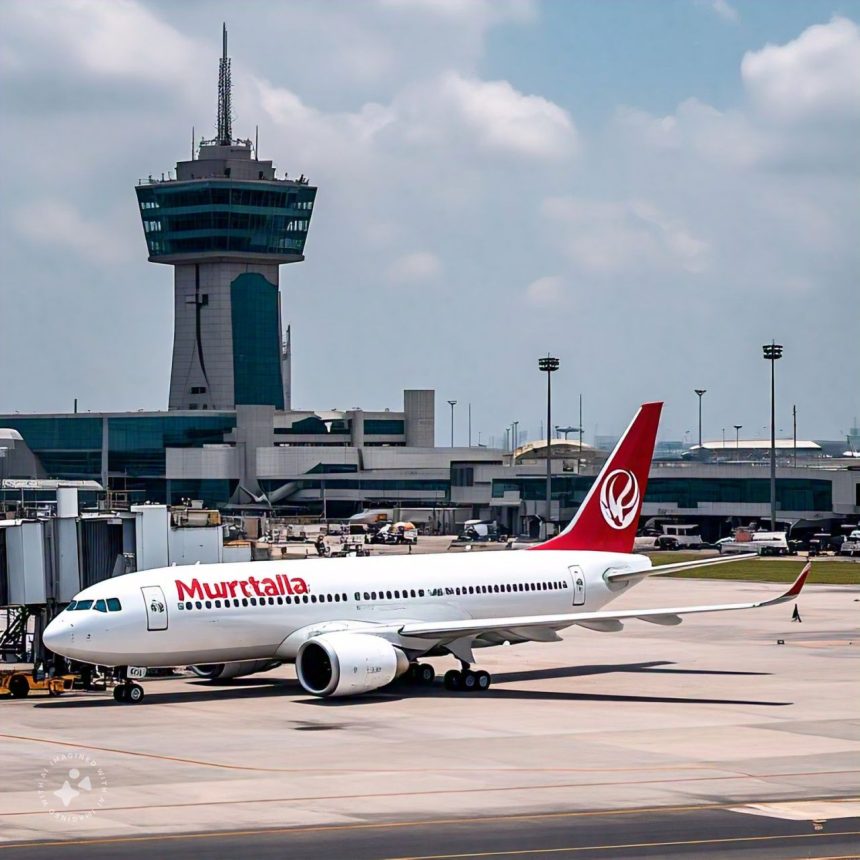By Fatima Tijjani
Today, as the world celebrates International Civil Aviation Day, Nigeria’s aviation sector takes center stage, reflecting a blend of triumphs and challenges.
With a theme focused on “Advancing Innovation for Global Aviation Development,” this day underscores the critical role of aviation in connecting nations and driving socio-economic growth. For Nigeria, the sector’s journey mirrors its aspirations for regional leadership and global competitiveness.
The Nigerian aviation industry boasts a history that dates back to the mid-20th century, once symbolized by the national pride of Nigeria Airways.
However, decades of economic turbulence, policy inconsistencies, and management issues led to the eventual collapse of the carrier in 2003. Its absence left a void that successive governments have tried, yet struggled, to fill.Currently, private operators like Air Peace, Dana Air, and others have worked to bridge this gap, ensuring domestic and regional connectivity.
Their efforts, though commendable, face significant constraints, including high operational costs, limited infrastructure, and volatile policies.
The resilience of these airlines is a testament to their commitment to the industry’s survival.One of the most pressing challenges in Nigerian aviation is the state of infrastructure.
Many airports, especially those in regional cities, lack modern facilities, hindering passenger comfort and operational efficiency. While efforts have been made to upgrade major hubs such as Lagos and Abuja, smaller airports require urgent attention to enhance nationwide connectivity.Additionally, the high cost of aviation fuel remains a thorn in the industry’s side.
Nigeria, despite being an oil-producing nation, imports most of its aviation fuel due to limited refining capacity. This dependency results in exorbitant costs that airlines are forced to bear, often passing the burden onto passengers through higher ticket prices.
Flight delays and cancellations are another recurring issue, often linked to poor weather forecasting systems and inadequate air traffic control facilities.
These disruptions not only inconvenience passengers but also tarnish the country’s aviation reputation, especially for international travelers.On the safety front, Nigeria has made notable progress.
The country’s attainment of Category 1 safety status by the U.S. Federal Aviation Administration is a milestone. It signifies adherence to international safety standards and inspires confidence among foreign airlines operating in Nigeria.
In recent years, the government has attempted to address the absence of a national carrier through the Nigeria Air project.
While the initiative has faced legal and financial hurdles, it remains a beacon of hope for those yearning for the resurgence of a state-backed airline.Furthermore, bilateral air service agreements (BASA) have opened Nigeria’s skies to more international airlines, fostering partnerships and improving global connectivity.
However, these agreements must be carefully managed to ensure mutual benefits and protect local operators from unfair competition.
The aviation sector’s role in economic development cannot be overstated. By facilitating trade, tourism, and investments, the industry significantly contributes to GDP growth. Yet, its full potential remains untapped due to systemic challenges that need urgent redress.Government policies and regulations also play a crucial role in the industry’s trajectory. Inconsistent and unpredictable policy shifts have, at times, deterred investors, highlighting the need for stability and transparency to attract foreign direct investment.
Training and capacity building are equally vital for the sector’s sustainability. Nigeria needs more skilled pilots, engineers, and air traffic controllers to meet the growing demand for air travel. Investing in aviation schools and professional development programs is non-negotiable.
Aviation also has environmental implications, particularly concerning emissions. As global discussions on climate change intensify, Nigeria must align with sustainable aviation practices, such as investing in greener technologies and adopting policies that minimize the environmental impact of air travel.
On this International Civil Aviation Day, it is also essential to acknowledge the efforts of stakeholders who keep the industry afloat. From airline operators to ground staff and regulatory agencies, their resilience ensures that the sector remains functional despite the odds.Looking ahead, the Nigerian aviation industry requires a multi-faceted approach to thrive. Infrastructure development, policy consistency, and capacity building must be prioritized to position Nigeria as a hub for African aviation.
The potential for the aviation sector to drive regional integration is immense. Nigeria, as Africa’s most populous country, holds a strategic position in connecting the continent’s markets and fostering economic growth through air transport.Collaboration with global partners is another avenue to explore.
Joint ventures and technical partnerships can bring in expertise and resources to address existing challenges and enhance operational efficiency.
The theme of this year’s commemoration aligns perfectly with Nigeria’s aviation aspirations.
By embracing innovation and adopting global best practices, the country can turn its aviation sector into a beacon of excellence.
As we celebrate this day, it is a moment for reflection and renewed commitment. Nigerian aviation has come a long way, but the journey to achieving its full potential continues.
The skies above Nigeria hold boundless opportunities, waiting to be harnessed with vision, determination, and collaborative effort.
In conclusion, International Civil Aviation Day is not just a celebration but a call to action for Nigeria. With strategic reforms and sustained investment, the country’s aviation sector can soar to new heights, fostering economic growth and enhancing global connectivity.
Fatima Tijjani is a 300 level Student from Mass Communication Department Borno State University Maiduguri.












